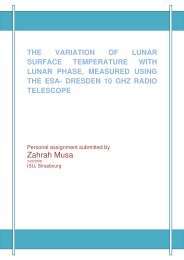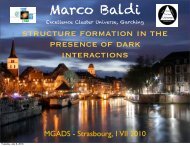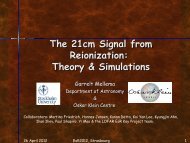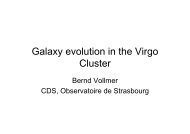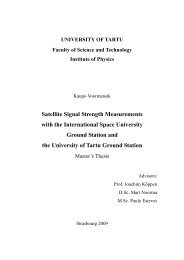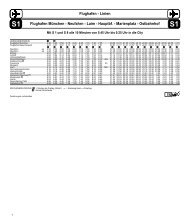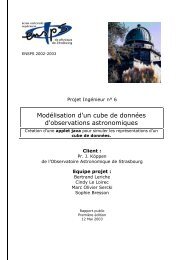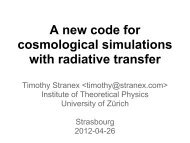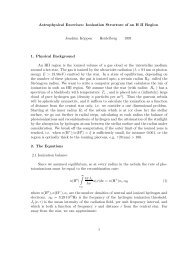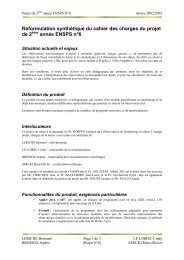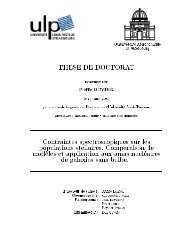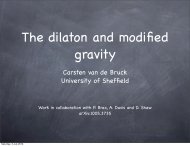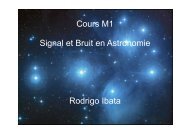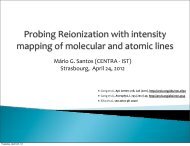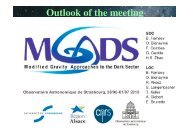View - Observatoire Astronomique de Strasbourg
View - Observatoire Astronomique de Strasbourg
View - Observatoire Astronomique de Strasbourg
Create successful ePaper yourself
Turn your PDF publications into a flip-book with our unique Google optimized e-Paper software.
The Emerging Scholarly Brain 31<br />
with trust (Josang, et al 2007). Only directly relevant, and well regar<strong>de</strong>d<br />
papers and individuals are used; ADS further restricts the rea<strong>de</strong>rs by removing<br />
persons who come from external search engines, who usually do not<br />
share the goals of professional researchers (Kurtz and Bollen 2010).<br />
The SOO were first implemented in the ADS in 1996; they are used<br />
throughout the system, and form much of the basis for the myADS notification<br />
service (myads.harvard.edu).<br />
4.3. RECOMMENDER SYSTEMS<br />
If direct queries to an information system, such as ADS, can be viewed as<br />
consciously recalling data from the collective memory, then recommen<strong>de</strong>r<br />
systems might be likened to having memories pop into your head. Recommen<strong>de</strong>r<br />
systems as a research and application field cover an enormous<br />
range of different areas (c.f. recsys.acm.org) focusing mainly on commercial<br />
uses; here we will concentrate on the recommen<strong>de</strong>r systems for scholarly<br />
literature.<br />
In a scholarly field, such as astrophysics, the information is <strong>de</strong>nser, and<br />
the use sparser, than in many other fields. For example The Vi<strong>de</strong>ohound’s<br />
Gol<strong>de</strong>n Movie Retriever lists about 30,000 movies; the ADS contains more<br />
than four times this number of papers which contain the word cosmology in<br />
the abstract. The peak usage for a scholarly article is usually the first day<br />
it becomes available (so there can be no usage information) and <strong>de</strong>creases<br />
rapidly. The typical ten year old article from a major journal is downloa<strong>de</strong>d<br />
once per month.<br />
The ADS is building a set of recommen<strong>de</strong>rs based on the article currently<br />
being read, in the future we will also create recommen<strong>de</strong>rs based<br />
on the article viewing history of the rea<strong>de</strong>r. The exact <strong>de</strong>tails are yet to<br />
be <strong>de</strong>termined, the systems use nearly all the techniques <strong>de</strong>scribed in this<br />
section, as well as the CLUTO (Zhao and Karypis 2004) clustering software.<br />
Kurtz, et al (2009) and Henneken, et al (2010) <strong>de</strong>scribe the initial<br />
implementation; which is inten<strong>de</strong>d for use by active researchers.<br />
Briefly we use the text and references in an article to find a set of recent<br />
articles which are very similar to the target article in subject matter. These<br />
articles are then used with the SOO to find recommendations using the<br />
words/keywords, citations, usage, authors, and astronomical objects.<br />
5. The Scholarly Brain<br />
Working provisional copy - Pls do not circulate<br />
In addition to having immensely enhanced memories, we now also have immensely<br />
enhanced perception. The new data intensive science (Gray 2007)<br />
rests not simply in the mechanical extension of our perception, as begun<br />
by Galileo and van Leeuwenhoek, but on the automated perception and



